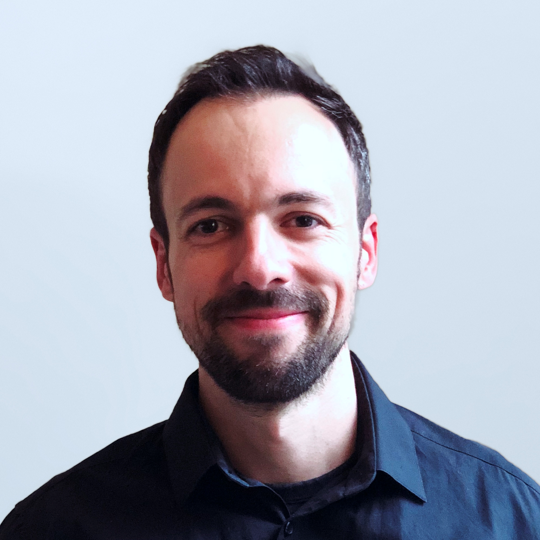Career support through a FEBS Long-Term Fellowship: from Sweden to Amsterdam, the Netherlands, for aging research

 Georges Janssens is an American and French national. He performed his PhD research at the European Institute for the Biology of Aging, in Groningen, the Netherlands, before going on to do his first postdoc at the Karolinska Institutet in Stockholm, Sweden. His second postdoc, supported by a FEBS Long-Term Fellowship from 2017 to 2019, was carried out at the Amsterdam University Medical Centers in the Netherlands, where he currently works as an assistant professor. At the Amsterdam UMC he performs research to develop diagnostic tools to track the aging process and works to discover pharmacological interventions to promote health throughout aging. His work spans bioinformatic-based biomarker development to machine-learning-based computational drug discovery. His current focus is on the interplay between different longevity pathways, including those of mitochondrial biology, nutrient sensing, and metabolism.
Georges Janssens is an American and French national. He performed his PhD research at the European Institute for the Biology of Aging, in Groningen, the Netherlands, before going on to do his first postdoc at the Karolinska Institutet in Stockholm, Sweden. His second postdoc, supported by a FEBS Long-Term Fellowship from 2017 to 2019, was carried out at the Amsterdam University Medical Centers in the Netherlands, where he currently works as an assistant professor. At the Amsterdam UMC he performs research to develop diagnostic tools to track the aging process and works to discover pharmacological interventions to promote health throughout aging. His work spans bioinformatic-based biomarker development to machine-learning-based computational drug discovery. His current focus is on the interplay between different longevity pathways, including those of mitochondrial biology, nutrient sensing, and metabolism.
How did you choose your host lab for the FEBS Fellowship?
A lot of elements came together when choosing my host lab. I’d say the top three were as follows. (1) I wanted to keep working on aging research, since this had been my passion throughout my Master's, PhD, and first postdoc. The host lab I found was specialized in mitochondria and aging, which was something I could link my previous work to quite well, and this felt important when writing the application for the FEBS Fellowship. (2) I wanted to get more ‘translational’ in my research, since up until this point I had worked with yeast and worms, and I wanted to feel more impact on society from the research I did. The lab I chose worked with worms, but also with mice and humans, so a great bridge was available for me there. (3) I was in a long-distance relationship and my partner was Dutch, living in the Netherlands. That narrowed my field of searching and I found the lab of Riekelt Houtkooper at the Amsterdam UMC, which fitted everything. All things considered, I’d admit that the order of importance of what I listed here is probably the reverse!
Tell us about a favourite research paper from the time of your Fellowship
My favourite publication is what I could call one of the main outcomes of my time with the FEBS Fellowship, which is an article in Cell Metabolism that I share first authorship for. The PhD student I worked with brought enthusiasm, lab experience, and creativity to the research, and we spent lots of time brainstorming on the science and biology underlying what we were studying, with ideas often coming in the middle of the night! We formed a great team and the outcome was more than the sum of our parts: together we were able to link quite distinct pathways in the aging research field.
A conserved mito-cytosolic translational balance links two longevity pathways. Cell Metab. 31, 549-563.e7. doi: 10.1016/j.cmet.2020.01.011
Did you have any particular research challenges or other difficulties to overcome during the Fellowship?
Certainly! By far the greatest one for me was becoming a father of twins during my FEBS Fellowship. How you do research changes when you have family obligations, and it required quite some adapting for me at first. You have to work within a limited time frame of the day and be ruthlessly efficient. This is probably where I learned to say ‘no’ to the usual millions of side projects I would otherwise be enticed to follow up on. A major factor for having it go smoothly was also that I had great support from the host lab. This is something crucial to the success of young researchers starting up families while building up careers and shouldn’t be underestimated. All in all I probably got lucky with everything.
How important was the Fellowship to obtaining your position now?
The Fellowship allowed me to work in the host lab I joined, which otherwise didn’t have funding for me to stay long term. Furthermore, it contributed to me being able to get the subsequent grant that now funds me, the VENI grant from the Netherlands. All in all, the FEBS Fellowship allowed me to be where I am today, which is now an assistant professor, in the process of starting up my own independent research lines.
What do you think are the essential ingredients for a successful postdoc?
It’d be too obvious if I say ‘perseverance,’ although it’s probably one of the main drivers for a successful postdoc. And it’d also be a bit useless information if I just say ‘lots of luck,’ though it arguably plays a bigger role than we’d like to imagine. Perhaps then the most useful information I can pass on is that a lot of it comes down to the host lab you choose. This will determine the support you get, the knowledge and techniques available, and the opportunities you can be given in the future. It will determine the colleagues you get too, which will contribute to the environment you work in. Altogether, the host lab you choose will play a crucial role in determining how you feel about research, whether you are relaxed and happy about it, or stressed and frustrated, and these will ultimately play the biggest part in your scientific output, career and overall wellbeing.
For information on FEBS Long-Term Fellowships on the FEBS website, start here.
Top image of post: by Carlos Araujo from Pixabay





Join the FEBS Network today
Joining the FEBS Network’s molecular life sciences community enables you to access special content on the site, present your profile, 'follow' contributors, 'comment' on and 'like' content, post your own content, and set up a tailored email digest for updates.